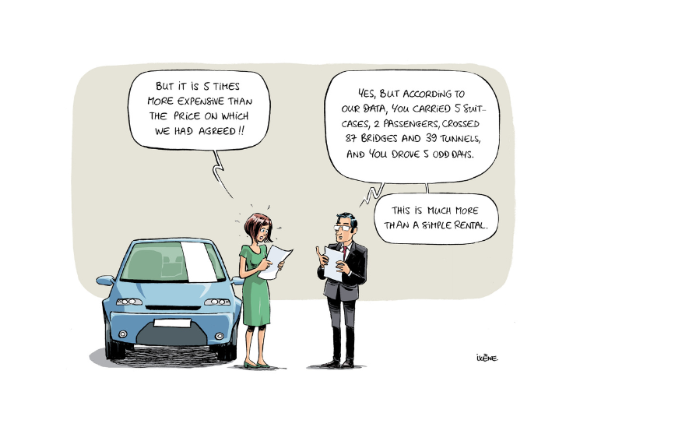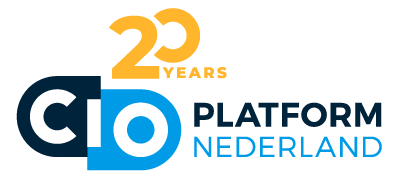Fair Principle 8: Service levels and product specifications shall be explicitly listed and take the context of the customer into account
Fair Principle 8: Service levels and product specifications shall be explicitly listed and take the context of the customer into account
 Thursday 08 September 2022
Thursday 08 September 2022 Business users associations Beltug, Voice, Cigref and CIO Platform Nederland call for a balanced cloud market: 11 fair principles to unleash Europe’s digital potential. Fair principle 8 calls for service levels and product specifications to being explicitly listed and taking the context of the customer into account.
"Good agreements make good friends" is the basis for sustainable relationships, not only between people but also between customers and suppliers. Business software and cloud solutions are a relatively young but fast changing industry and the above statement deserves more attention from both parties. Because only via this approach we will achieve good governance around cloud projects.
Concepts such as quality and availability have become self-evident in traditional utilities. Electricity is supplied in Europe as alternating current at a voltage of +/- 230 Volt and a frequency of 50 Hz. Water must also meet several criteria before it can be supplied as drinking water. The suppliers of water and electricity must also respect criteria regarding availability and communicate clearly if these criteria are not met.
Cloud solutions are end-to-end solutions whose quality and availability must also be recorded. After all, this process is slightly more complex than what we are used to with water and electricity. How do you define the quality of software and cloud solutions? Clarity must be provided here through product specifications that are well-defined and interpreted in the same way by all parties. Availability must be detailed in a set of service levels that are -also- well-defined and interpreted in the same way by all parties.
Software vendors offering cloud solutions need to ensure and explicitly list the responsibility they take regarding these product specifications and service levels. Different aspects should be considered:
- In a cloud solution the customer does not have access to the lower layers of the technology stack. For example, in a Software-as-a-Service solution, the customer does not have access to the physical infrastructure and the storage, but instead only consumes the front-end application or website. The agreement should specify service descriptions, service level KPIs, the consequences for not meeting the service levels, response and resolution times.
- A cloud solution can use open components but also proprietary components, protected by IP. The vendor remains responsible for indemnifying and holding the customer harmless.
- The same solution can be used by different types of customers under different circumstances. Therefore, the product and service described in the contract should match the requirements of each type of customer. If the solution is critical for the business continuity, the vendor should not disclaim its responsibility and offer the service which is aligned with the industry expectations.
- In many cases upgrade cycles are too fast for the customer to perform regression testing before the cloud upgrade is required.
This brings us to Fair Principle 8: service levels and product specifications shall be explicitly listed and take into account the context of the customer.
More news
Kick off session CxOs in the Maritime Sector | Data in the Port Ecosystem
 Friday 19 July 2024 Knowledge sharing on digitization topics relevant to the maritime sector. Meetings are organized by/in cooperation with CIO Platform Netherlands and are open to organizations wishing to share knowledge on substantive issues. CIO Platform Netherlands reserves the right to deny access to meetings. full story
Friday 19 July 2024 Knowledge sharing on digitization topics relevant to the maritime sector. Meetings are organized by/in cooperation with CIO Platform Netherlands and are open to organizations wishing to share knowledge on substantive issues. CIO Platform Netherlands reserves the right to deny access to meetings. full storyA quick look back at the first six months of 2024
 Friday 12 July 2024 A nice summer blog of our new board member Edward Cox, also General Manager Louwman Group Services. Have a nice summer! full story
Friday 12 July 2024 A nice summer blog of our new board member Edward Cox, also General Manager Louwman Group Services. Have a nice summer! full storyAnnual Day 2024 - Aftermovie
 Monday 08 July 2024 A record number of CIO Platform Nederland members gathered on June 6th to celebrate our community's valuable and sociable Annual Day together under the banner 'Elevate your Digital Transformation'. Watch the aftermovie here. full story
Monday 08 July 2024 A record number of CIO Platform Nederland members gathered on June 6th to celebrate our community's valuable and sociable Annual Day together under the banner 'Elevate your Digital Transformation'. Watch the aftermovie here. full storyResearch on labour market shortages, help us reach 100 and help yourself!
 Monday 24 June 2024 The shortage of qualified ICT talent is a brake on growth for many organisations. Together with other organisations, we are committed to tackling this challenge. We would like to ask for the help of our members by filling out a survey. full story
Monday 24 June 2024 The shortage of qualified ICT talent is a brake on growth for many organisations. Together with other organisations, we are committed to tackling this challenge. We would like to ask for the help of our members by filling out a survey. full story